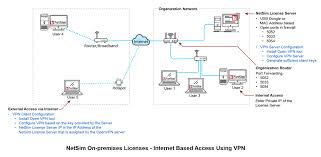Unveiling the Best Open Source VPN Solutions for Enhanced Privacy and Security
Exploring the Best Open Source VPN Solutions
In today’s digital age, online privacy and security have become paramount concerns for individuals and businesses alike. Virtual Private Networks (VPNs) offer a secure way to protect your data and maintain anonymity while browsing the internet. While there are many commercial VPN services available, open-source VPN solutions provide a transparent and customisable alternative for those who value privacy and control over their network.
Benefits of Open Source VPNs
Open-source VPNs offer several advantages over proprietary solutions. Firstly, the source code of open-source software is freely available for inspection, allowing users to verify its security and privacy features. This transparency builds trust among users who are concerned about backdoors or vulnerabilities in closed-source software.
Secondly, open-source VPNs can be customised to suit specific requirements. Users can modify the software to add new features, enhance performance, or tailor it to their unique use case. This flexibility is particularly valuable for businesses that need a VPN solution that integrates seamlessly with their existing infrastructure.
Top Open Source VPN Solutions
OpenVPN: One of the most popular open-source VPN protocols, OpenVPN is known for its robust security features and cross-platform compatibility. It uses SSL/TLS for encryption and supports a wide range of operating systems.
WireGuard: WireGuard is a modern VPN protocol that aims to be faster and more secure than traditional protocols like OpenVPN. It boasts simplicity in design while offering strong encryption standards.
SoftEther VPN: SoftEther VPN is an open-source multi-protocol VPN software that supports various protocols such as SSL-VPN, L2TP/IPsec, and more. It is known for its high performance and scalability.
Choosing the Right Open Source VPN
When selecting an open-source VPN solution, consider factors such as ease of setup, community support, security features, and compatibility with your devices. Evaluate each option based on your specific needs to ensure you choose a solution that meets your requirements for privacy, performance, and ease of use.
Whether you are an individual looking to safeguard your online activities or a business seeking a secure network solution, exploring the world of open-source VPNs can provide you with greater control over your digital privacy without compromising on security.
Top 6 Tips for Choosing and Using the Best Open Source VPN
- Research and compare different open source VPN options to find one that best suits your needs.
- Ensure the open source VPN you choose has strong encryption protocols to protect your data and privacy.
- Regularly update your open source VPN software to patch any security vulnerabilities.
- Consider community support and active development when selecting an open source VPN for reliability and future updates.
- Review user feedback and ratings to gauge the performance and user satisfaction of the open source VPN.
- Take advantage of online resources, forums, and documentation available for popular open source VPNs to troubleshoot issues or optimize settings.
Research and compare different open source VPN options to find one that best suits your needs.
To make an informed decision on the best open-source VPN for your requirements, it is essential to conduct thorough research and compare various options available. By evaluating factors such as security features, ease of use, compatibility, and community support, you can identify the VPN solution that aligns most closely with your specific needs. Taking the time to research and compare different open-source VPN options ensures that you select a reliable and effective tool to safeguard your online privacy and security effectively.
Ensure the open source VPN you choose has strong encryption protocols to protect your data and privacy.
When selecting the best open-source VPN for your needs, it is crucial to ensure that the chosen VPN solution implements robust encryption protocols to safeguard your data and privacy. Strong encryption protocols are essential for securing your online activities and preventing unauthorized access to your sensitive information. By choosing an open-source VPN with strong encryption standards, you can enhance the security of your internet connection and enjoy a safer browsing experience with peace of mind knowing that your data is well-protected.
Regularly update your open source VPN software to patch any security vulnerabilities.
To ensure the highest level of security and protection for your online activities, it is essential to regularly update your open-source VPN software. By keeping your VPN software up to date, you can effectively patch any security vulnerabilities that may be discovered over time. These updates not only enhance the overall security of your VPN but also help in safeguarding your data and privacy while browsing the internet. Stay proactive in updating your open-source VPN software to stay one step ahead of potential threats and maintain a secure online experience.
Consider community support and active development when selecting an open source VPN for reliability and future updates.
When choosing the best open-source VPN solution, it is essential to consider factors such as community support and active development. Opting for a VPN with a strong community backing ensures that you have access to a wealth of knowledge and resources to troubleshoot any issues that may arise. Additionally, selecting a VPN with ongoing development guarantees that the software will receive regular updates and improvements, enhancing its reliability and security for the future. By prioritising community support and active development, you can make an informed decision that aligns with your needs for a dependable and up-to-date open-source VPN solution.
Review user feedback and ratings to gauge the performance and user satisfaction of the open source VPN.
To assess the performance and user satisfaction of the best open-source VPN solutions, it is essential to review user feedback and ratings. By examining the experiences and opinions shared by users, one can gain valuable insights into the reliability, speed, security, and overall usability of the VPN software. User feedback provides real-world perspectives on the strengths and weaknesses of each solution, helping individuals and businesses make informed decisions when selecting an open-source VPN that aligns with their specific needs and expectations.
Take advantage of online resources, forums, and documentation available for popular open source VPNs to troubleshoot issues or optimize settings.
To make the most of the best open-source VPN solutions, leverage online resources, forums, and documentation that are readily available for popular options. These platforms can be invaluable for troubleshooting any issues that may arise or for fine-tuning settings to optimise performance. By tapping into the collective knowledge and expertise of the community surrounding open-source VPNs, users can navigate challenges effectively and tailor their VPN experience to meet their specific needs.







